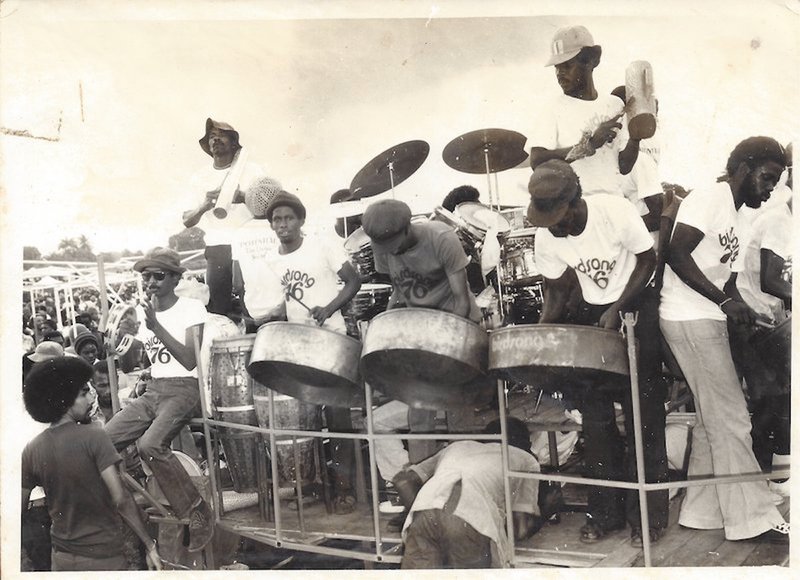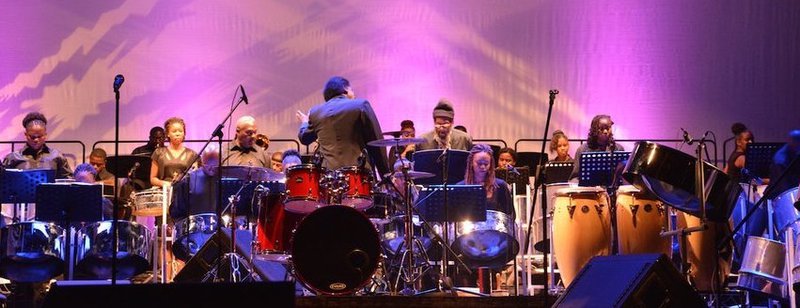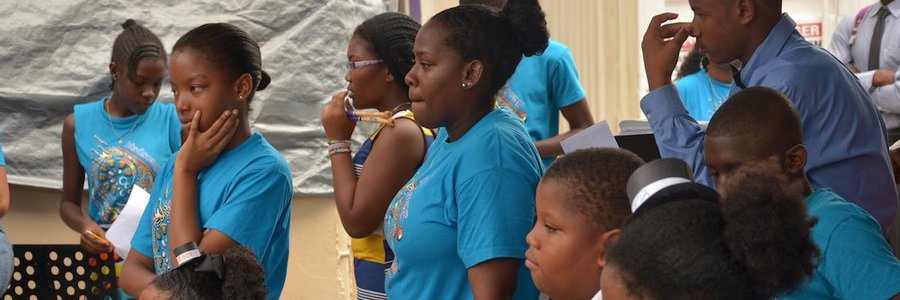Without a National Policy for Pan, situations like the eviction imbroglio that is presently confronting Birdsong are bound to occur. If the steelpan is the national instrument then we have to set up the national infrastructure within which steelbands can pursue sustainable development. Such a policy should clearly outline the responsibilities of all the stakeholders in the development process.
Birdsong began its existence, in 1973, as a campus club at the University of the West Indies at St. Augustine. The band’s first home was an abandoned gymnasium located next to the Daaga Hall building, adjacent to the playing fields near the University’s front entrance. Within a year Birdsong outgrew its campus club status when it opted to enter the Steelband Panorama and invite the workers on campus and members of the neighbouring Monte Grande and Tunapuna communities to join its student members as stakeholders in the Birdsong experience.
This created a conundrum for the University administration. Despite the previous efforts to integrate the UWI campus community with its surrounding community, by then warden the legendary Sir Frank Worrell, the campus administration found the concept of a student institution that also included workers and ‘outsiders’ as one integrated whole, much too revolutionary for its liking. As a consequence from that juncture Birdsong’s campus tenure and legitimacy was under threat. Arguably the University’s most successful and most tangible projection beyond its campus fences was deemed too radical to have a home within the embrace of those self same fences. University policy has not flexible enough or progressive enough to deal with the ‘new’ hybrid that was Birdsong in the 1970’s and 1980’s.

It was indeed ironic that a steelband whose very name - birdsong - was inspired by the potential contribution a university-based steelband could make in the area of experimentation and research, was not welcome on the University campus. The next logical option was to relocate from a University that considered its presence superfluous to a neighbouring Tunapuna community with which Birdsong had been building a strong organic connection.
After a temporary sojourn on the Eastern Main Road the band eventually moved to its present location at the corner of Connell and St. Vincent Streets in Tunapuna. There for almost three decades Birdsong built an organisation that represented its community in Panorama’s and Music Festivals; formed symbiotic relationships with schools in its catchment area by making its panyard available for co-curricular music projects; established income streams and employment opportunities to fund its activities and create jobs and developed the concept of a panyard academy that has offered music literacy and tertiary education opportunities to generations of young people, many of whom have carved out careers in the music industry.

Birdsong has also been working assiduously on fine-tuning its own model of sustainable development which includes purchasing a property as a permanent location for its varied activities. But the truth is capital formation is a tenuous process for steelbands. As essentially cultural institutions they do not ‘qualify’ for loans from financial institutions. While so many of us claim particular steelbands as ‘my band’ at Panorama time, the recurrent expenditure that is needed to produce ‘musical excellence is prohibitive. Steelbands because of the realities of the social and economic strata that spawn and support their existence do not begin their existence with inheritances of tangible capital resources.
Birdsong has not stood idly by and relied on third party solutions for their sustainable development. The band has been proactive, focussed and determined in seeking solutions. But without an enabling policy framework, the steelpan’s ‘national instrument’ status rings hollow, when issues of security of tenure have to be addressed as individual ‘private’ occurrences and responsibilities without the a defined countervailing public responsibility that gives tangible recognition to their right to existence. No one is advocating ‘rights’ without responsibilities. But the concept of cultural creativity as a ‘free’ public service that must be provided and subsidized as a ‘labour of love’ by cultural activists must be challenged.
It would be a travesty of justice of the highest degree if the policy issues of security of tenure for all steelbands in general and the massive and inspiring contribution of Birdsong over so many years, in particular, are reduced to the summary resolution of a bailiff, armed with a demolition order. Surely there must be room for a win-win resolution, which respects both private and public interests, long term tenancy and the opportunity to put policy solutions on the front burner. Birdsong is too important to our national agenda in so many ways for good people to stand idly by when its existence and proactive contribution stands in the balance. We must make our presence felt on Monday August 15th at ---- a.m. to support good sense and a mutually acceptable compromise.


